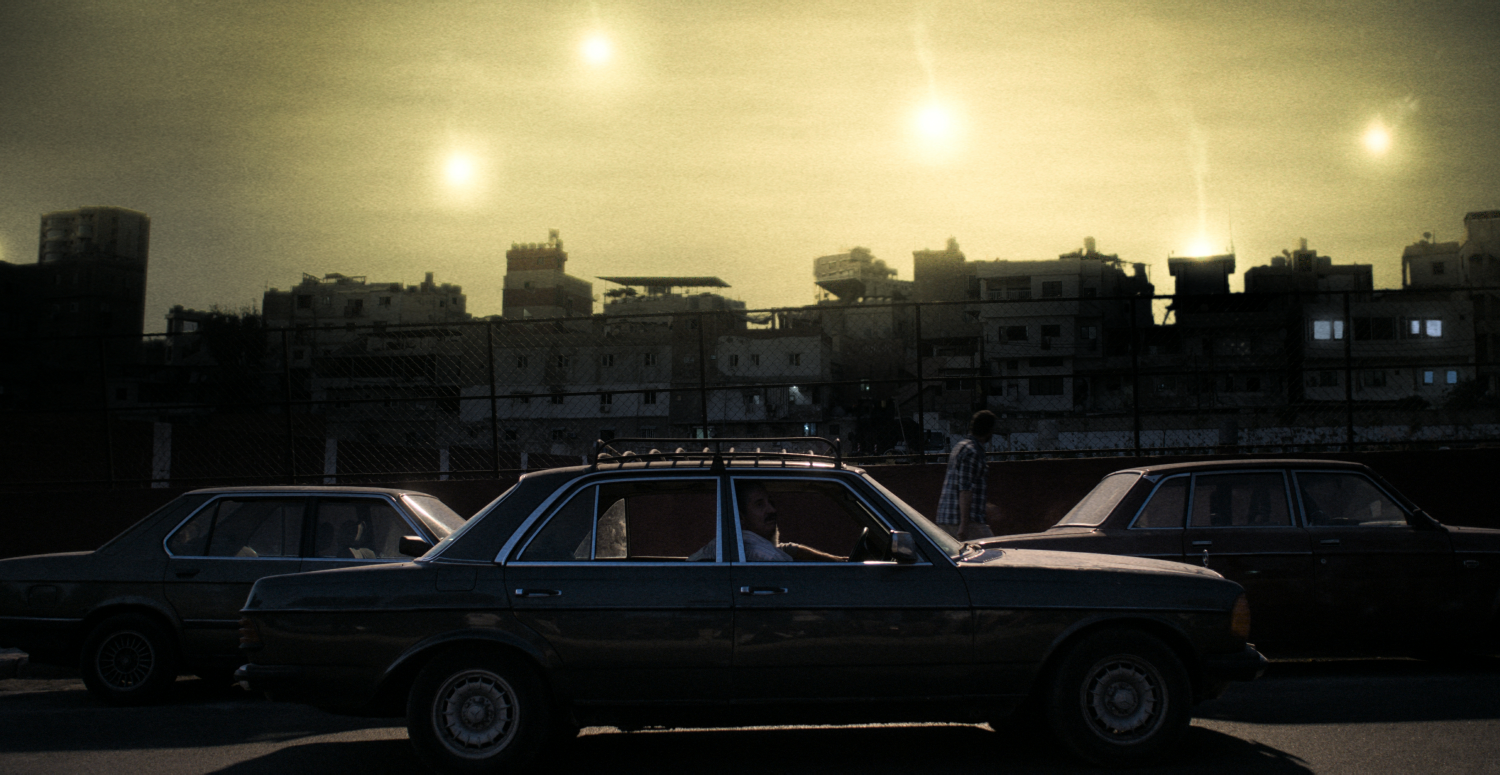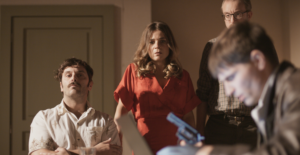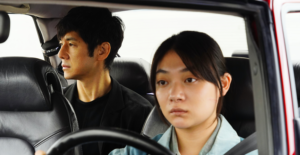Le Quatrième Mur
2025

FR EN
Brutal. Voilà comment l’on pourrait qualifier « Le Quatrième Mur », long-métrage signé David Oelhoffen et adapté du roman éponyme de Sorj Chalandon. Liban, 1982 : Georges reprend le projet cher et risqué d’un grand ami metteur en scène, à savoir celui de monter l’Antigone de Jean Anouilh en pleine guerre civile dans le Pays du Cèdre, avec des actrices et acteurs issues et issus de toutes les communautés (confessionnelles comme politiques). Georges, qui n’y connaît rien à ce conflit, débarque alors dans un autre monde qui va le bouleverser…
Choquante, dramatique et tragique (ces deux derniers adjectifs étant très importants pour qui aura vu le film), l’intrigue nous plonge dans un Liban divisé et dévasté, où même l’idée d’une pièce de théâtre et plus généralement l’art ne parviennent pas vraiment à dépasser les clivages et les tensions. Georges est ainsi souvent dépassé, même lorsqu’il commence à un peu mieux comprendre les mécaniques de la guerre ; par exemple, il ne parle pas l’arabe – qui par choix n’est pas sous-titré, afin de souligner l’incompréhension qui effraye le héros du film.
Véritable et terrible immersion dans la guerre civile libanaise – avec une contextualisation historique réaliste et reprenant les complexes et nombreux évènements meurtriers de l’année 1982 –, « Le Quatrième Mur » témoigne de l’ultra-violence sourde et aveugle qu’ont vécue dans leur chair les populations locales, qu’importe leur bord ou leur religion. Le long-métrage constitue de surcroît une puissante et symbolique mise en abyme du théâtre et de la pièce Antigone, ici réappropriée géopolitiquement et personnellement par chacun des comédiens qui y jouent un rôle – et qui d’ailleurs avait été écrite par Anouilh pendant la Seconde guerre mondiale.
Avec des personnages profonds et touchants dont la fragile union par l’art en zone de guerre (prétendument) neutre transmet nombre de messages politiques, « Le Quatrième Mur » se conclut par une fin d’autant plus tragique qu’elle est le prolongement d’une introduction qui heurte et coupe le souffle dès les premières minutes. Un très bon film qui ébranle et remue mais qui est nécessaire.
Axel Chevalier
This is a brutal film! This is the adaptation by David Oelhoffen of the novel of the same name from Sorj Chalandon. Set in Lebanon in 1982, the story sees Georges take on the risky project of a dear friend and fellow theater director, to stage Jean Anouilh’s play Antigone in the midst of the civil war in Lebanon, with actors and actresses from all the country’s communities (religious and political). Georges, who knows nothing about the conflict, thus steps into another world that will shake him to the core…
The plot is shocking, dramatic and tragic (the last two adjectives being very important for anyone who has seen the film), and takes us into a divided and devastated Lebanon, where even the idea of a play, and art in general, cannot really overcome the divisions and tensions. Georges is often overwhelmed, even when he begins to understand the dynamics of war a little better; for example, he doesn’t speak Arabic – which, deliberately, is not subtitled, to emphasize the lack of understanding that frightens the protagonist.
The film is a true and terrifying immersion in the Lebanese civil war, with a realistic historical context that covers the complex and numerous murderous events of 1982. “Le Quatrième Mur” (Lit. “The Fourth Wall”) witnesses the deaf and blind ultra-violence felt in the flesh by the local population, regardless of political affiliation or religious beliefs. The film is also a powerful and symbolic mise en abyme of the theater and the play Antigone, here geopolitically and personally reclaimed by each of the actors who play a role in it – and which, after all, was written by Anouilh during the Second World War.
With deep, touching characters whose fragile union through art in a (supposedly) neutral war zone conveys a number of political messages, “Le Quatrième Mur” culminates in an ending that is all the more tragic for being the follow-up to a shocking and breathtaking introduction right from the very first minutes. This is a great film that unsettles and challenges, but is also highly relevant.
Axel Chevalier

